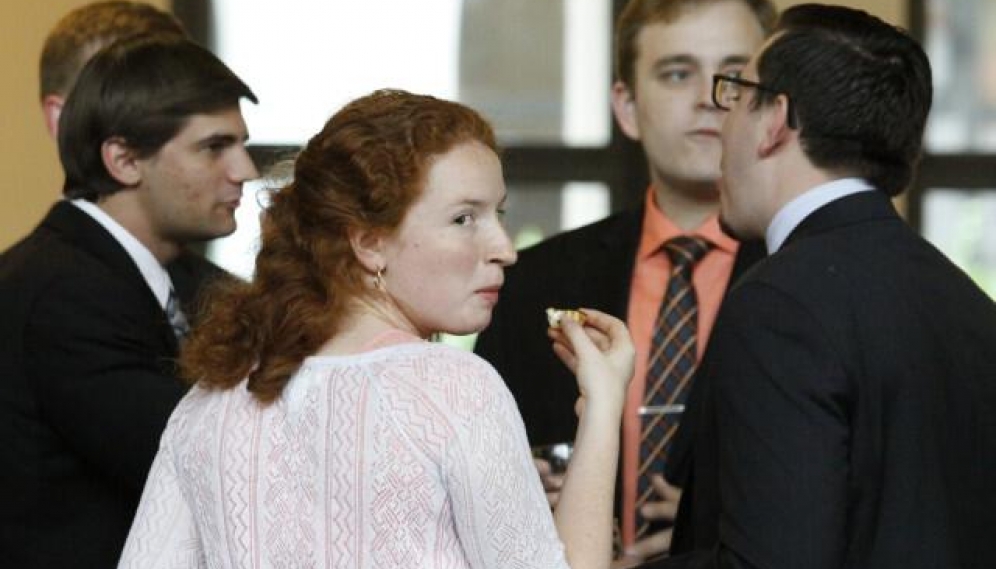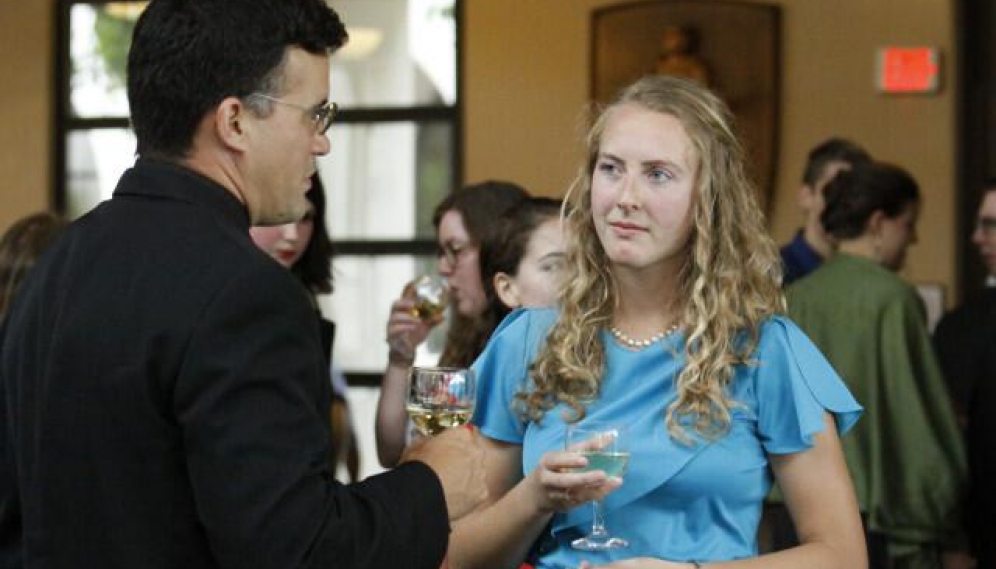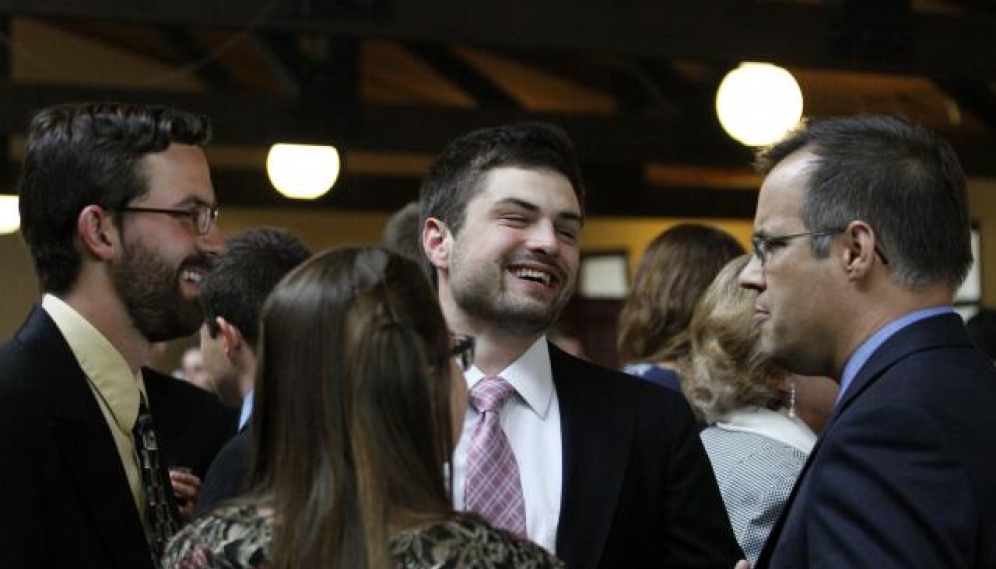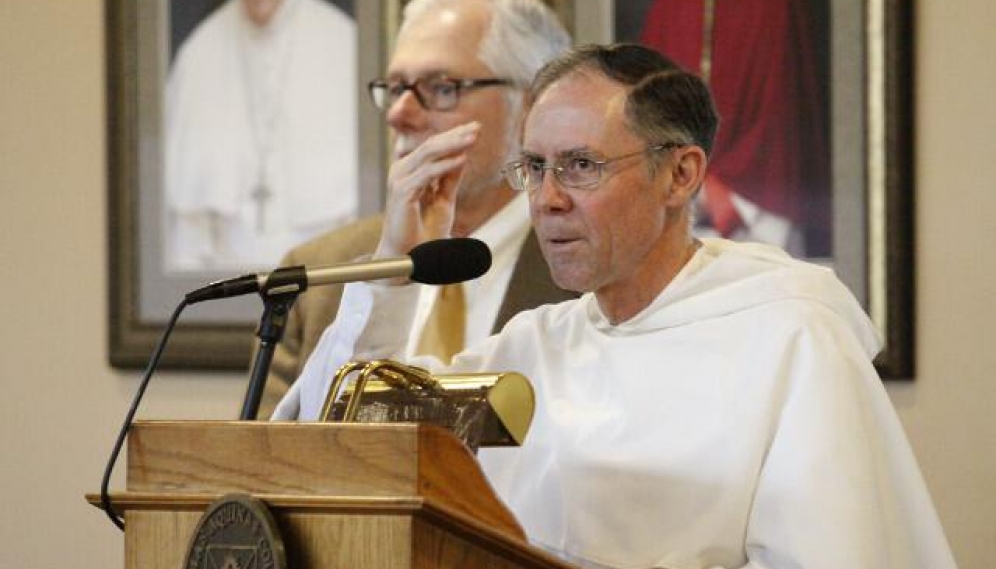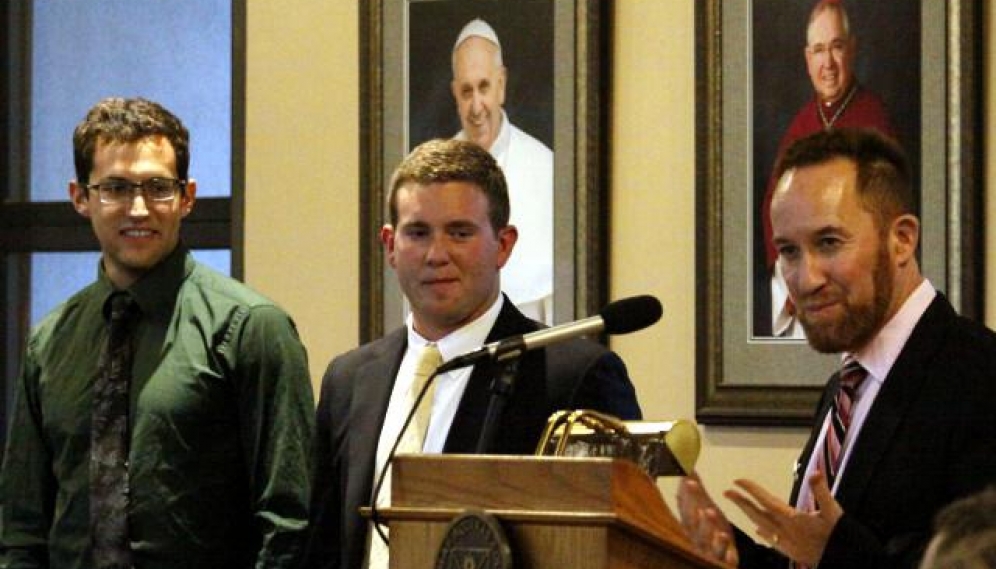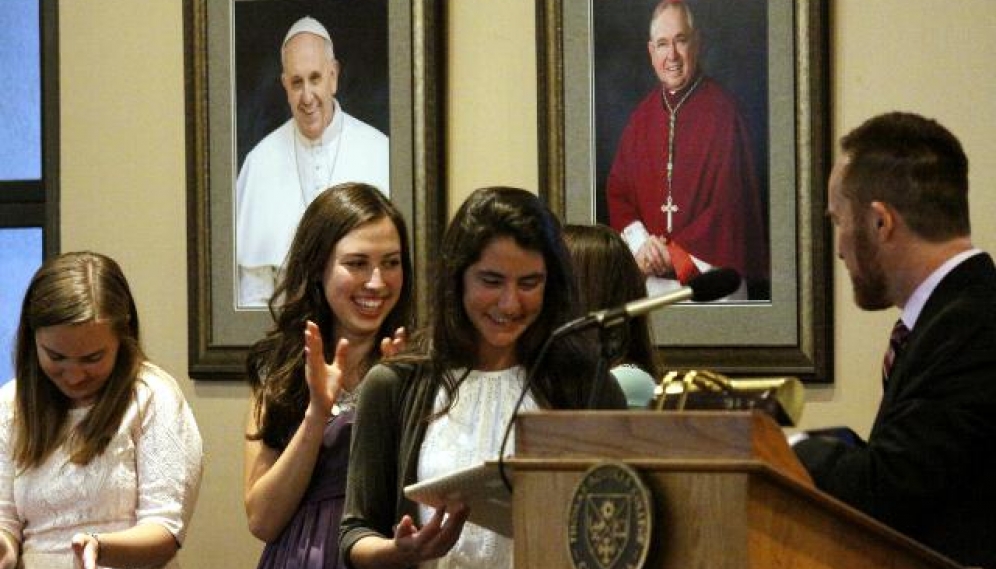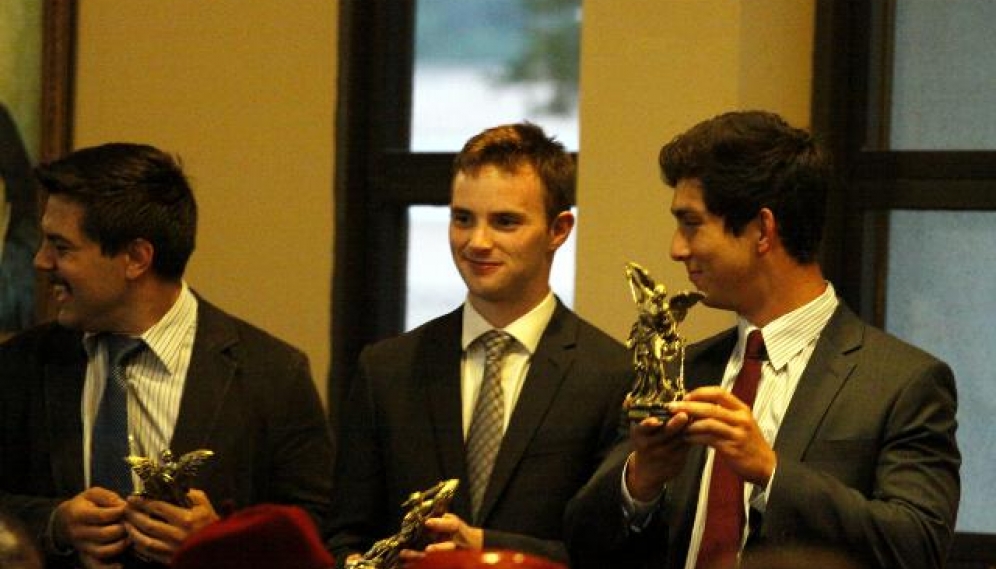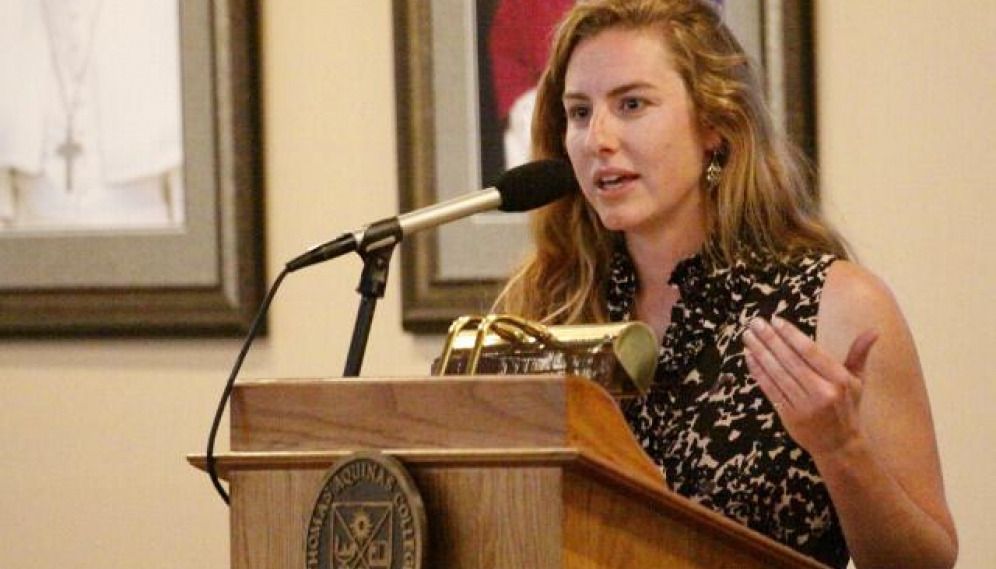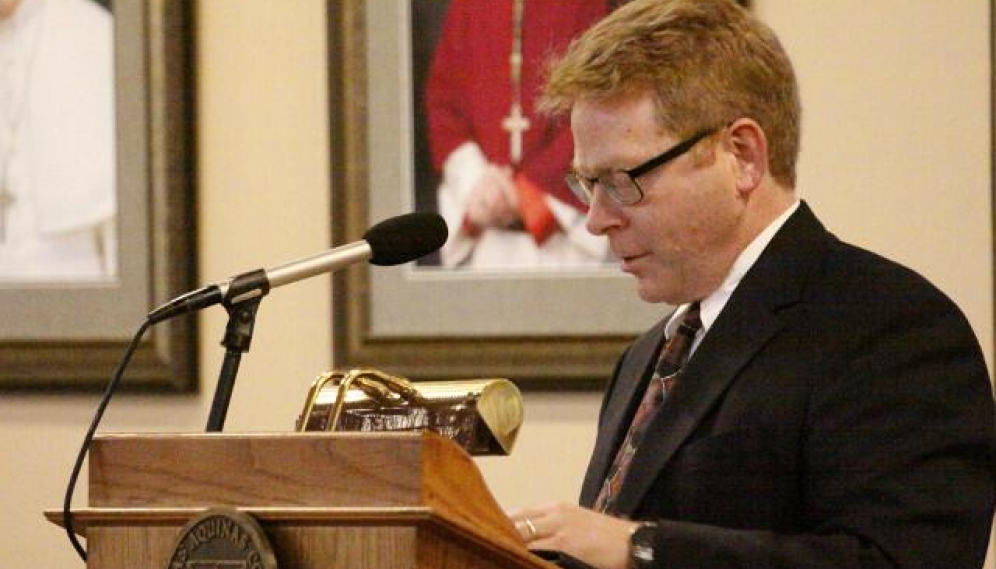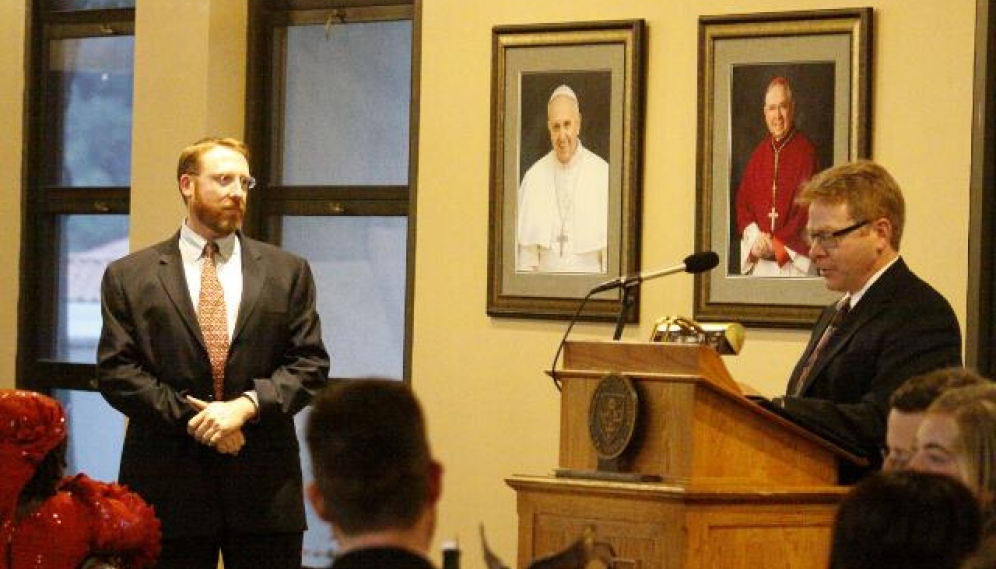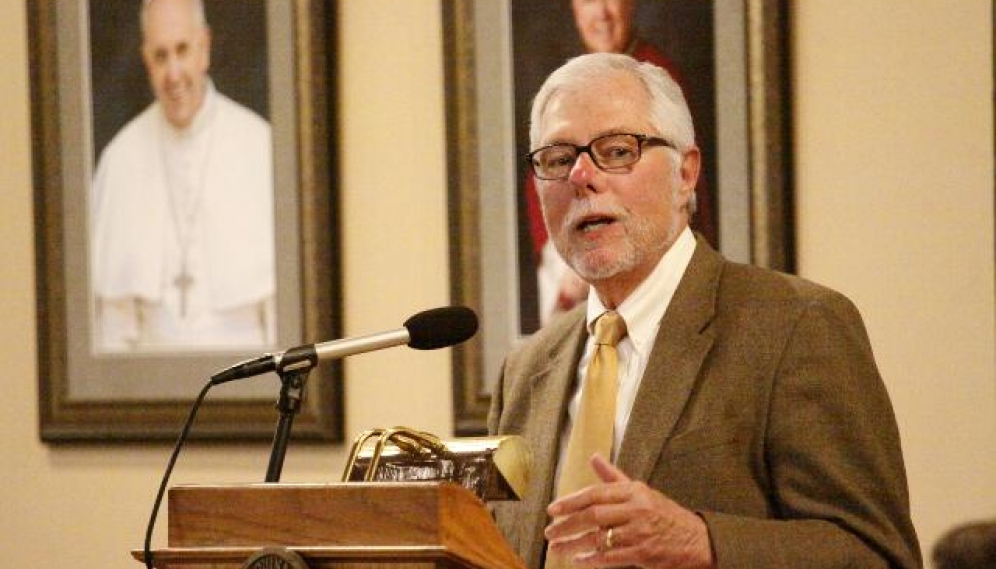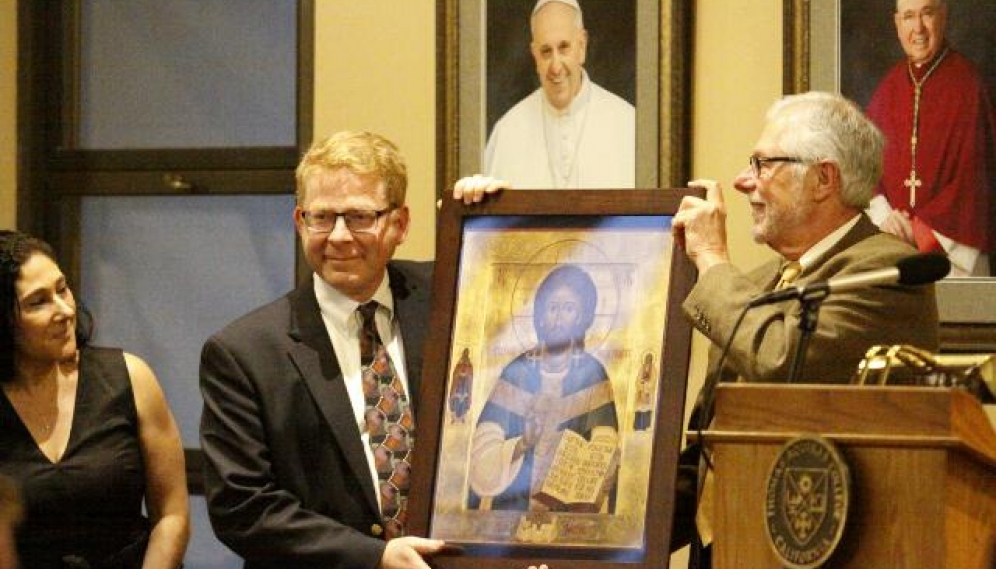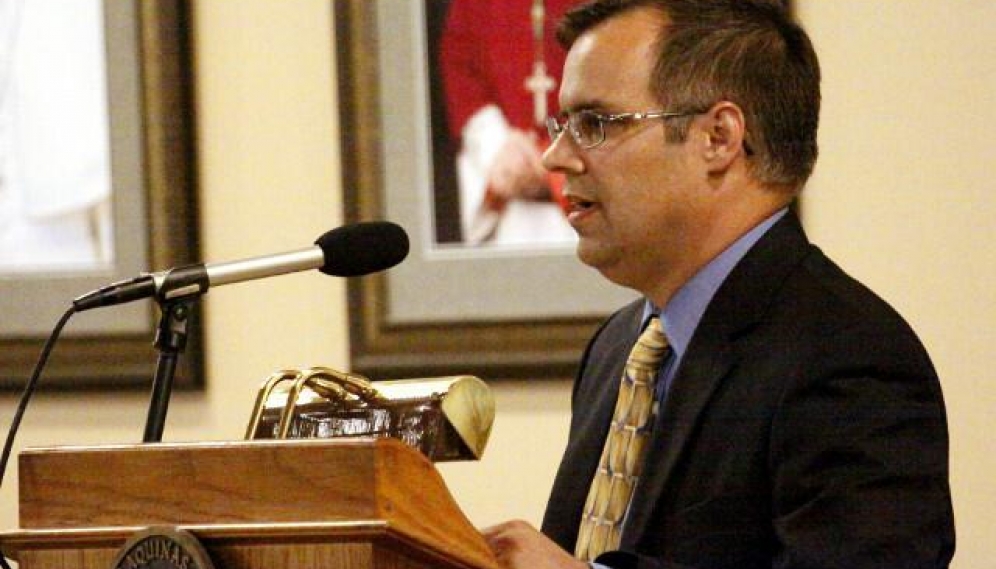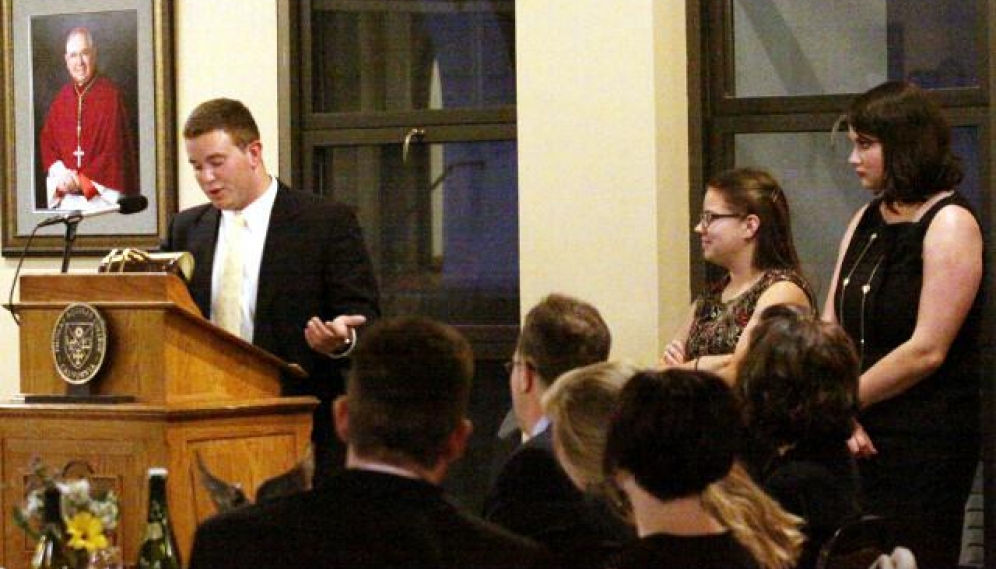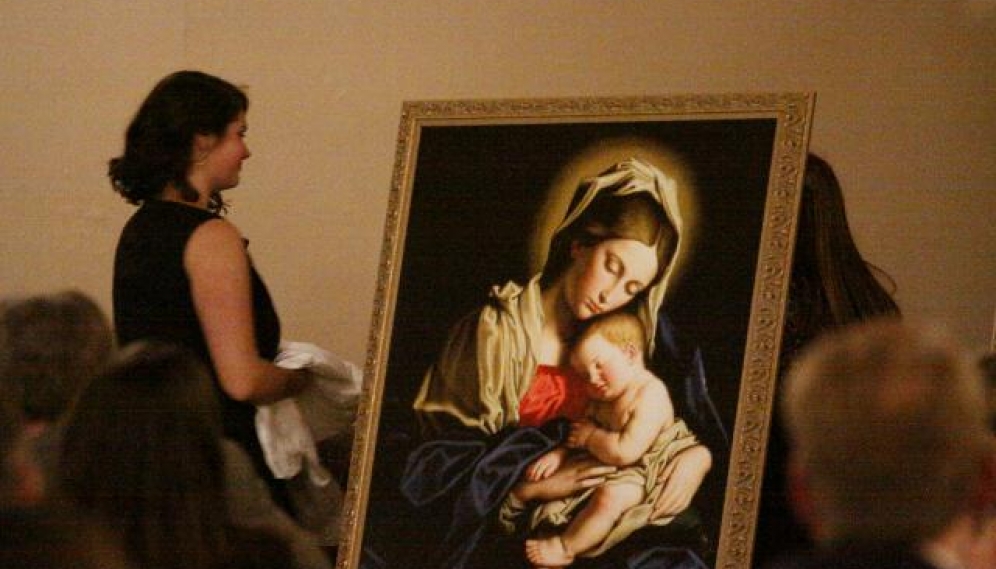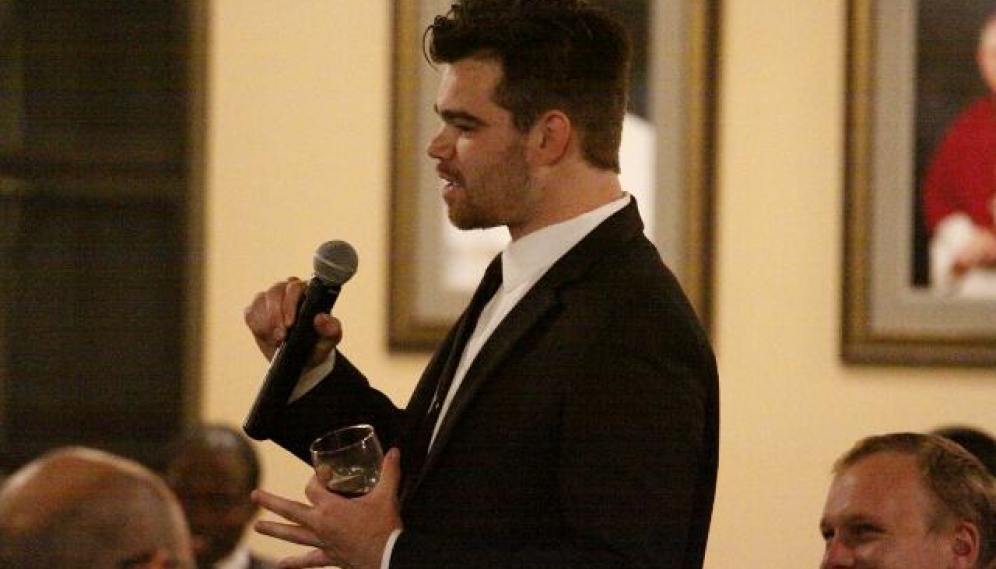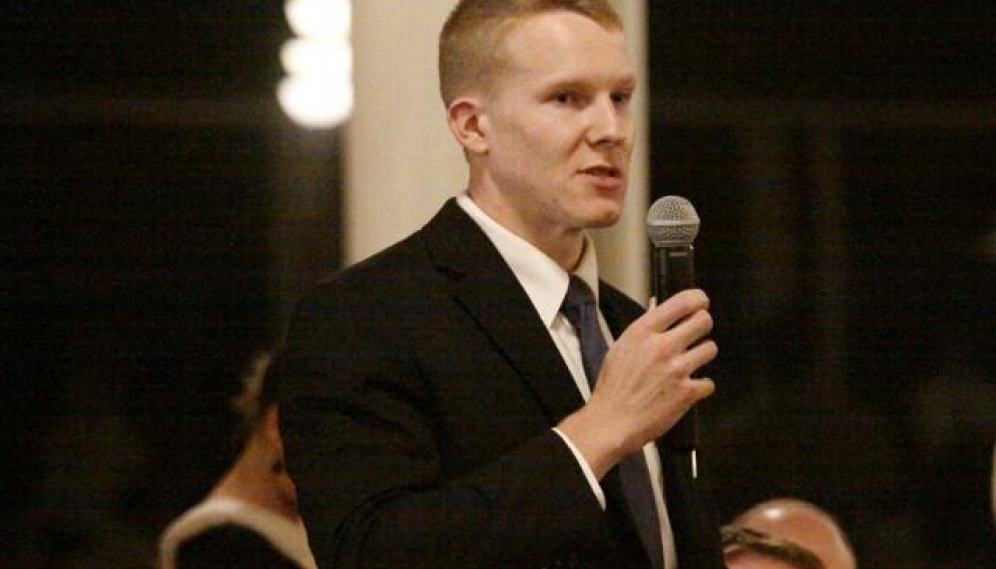- Home
-
About
 Fidelity & Excellence
Fidelity & ExcellenceThomas Aquinas College is unique among American colleges and universities, offering a faithfully Catholic education comprised entirely of the Great Books and classroom discussions.
-
A Liberating Education
 Truth Matters
Truth MattersTruth, and nothing less, sets men free; and because truth is both natural and supernatural, the College’s curriculum aims at both natural and divine wisdom.
-
A Catholic Life
 Under the Light of Faith
Under the Light of FaithThe intellectual tradition and moral teachings of the Catholic Church infuse the whole life of Thomas Aquinas College, illuminating the curriculum and the community alike.
-
Admission & Aid
 Is TAC Right for You?
Is TAC Right for You?Do you enjoy grappling with complex questions? Are you willing to engage in discussions about difficult concepts, with the truth as your ultimate goal?
-
Students & Parents
 Mind, Body & Spirit
Mind, Body & SpiritThere is always something to do at TAC — something worthwhile, something fulfilling, and something geared toward ever-greater spiritual and intellectual growth.
-
Alumni & Careers
 What Can You Do with a Liberal Education?
What Can You Do with a Liberal Education?Nothing speaks more to the versatility of the College’s academic program than the good that our alumni are doing throughout the Church and the world.
- Search
- Giving
The President’s Dinner 2017: Remarks and Slideshow
Note: Each year the president of Thomas Aquinas College hosts a dinner on the Wednesday before Commencement as a chance for members of the faculty and staff to bid farewell to the graduating class. The president, dean, and assistant dean all speak to the Seniors and, customarily, the Seniors present a gift to the College. Below are text and audio of President Michael F. McLean’s remarks and a photographic slideshow from this year’s dinner.
Address to the Class of 2017
By Dr. Michael F. McLean
President, Thomas Aquinas College
May 11, 2017
Three recent books on similar themes are creating quite a stir these days: Out of the Ashes, by Providence College professor Anthony Esolen; The Benedict Option by blogger Rod Dreher; and Strangers in a Strange Land, by Philadelphia Archbishop Charles Chaput. All, in one way or another, take up the question of how to live out the Catholic faith in an increasingly alien and hostile culture.
I chose to read Archbishop Chaput’s book first for several reasons. First, I have met him, and he has visited the College, and I know him to be a deeply intelligent and faithful Catholic. Second, he is an archbishop in the Catholic Church and leads a major archdiocese in the United States. And third, the reviews that I have read of these three books suggested to me that the hope and courage which lie at the heart of Chaput’s analysis are close to what I myself believe are required of Catholics in today’s world and, more importantly, best reflect the institutional commitments and mission of Thomas Aquinas College.
So, as you prepare to leave this campus, which has been your home for four years, and as you prepare to engage the culture as mature and educated young Catholic adults, I want to share a few key ideas from Strangers in a Strange Land in the hope that you will find Archbishop Chaput’s thoughts encouraging and edifying, as indeed I have, and that you will find the time to take up his book yourselves to get a fuller sense of what he is proposing to all Catholics, but especially to you who are the future of the Church.
Offering an account of why he wrote the book, Archbishop Chaput cites as a watershed event the 2015 Supreme Court decision in Obergefell v. Hodges, in which the Court ruled that states must license same-sex marriages and recognize similar marriages when lawfully preformed out of state. In this decision, Chaput says, “the Court [not only] struck down the nation’s traditional understanding of marriage … but changed the meaning of family by wiping away the need for the natural relationships — husband and wife, mother and father — at the heart of these institutions.”
Penetrating more deeply into the contemporary situation, Chaput points to tendencies within democracy itself that lie at the root of the problem. He says, “to protect the sovereignty of individuals, democracy separates them from one another. And to achieve that, the state sooner or later seeks to break down any relationship or entity that stands in its way. That includes every kind of mediating institution, from fraternal organizations, to synagogues and churches, to the family itself. This is why Alexis de Tocqueville observed in Democracy in America that ‘despotism, which is dangerous at all times, [is] particularly to be feared in democratic centuries.’”
Archbishop Chaput continues, “Tocqueville saw that the strength of American society, the force that kept the tyrannical logic of democracy in creative check, was the prevalence and intensity of religious belief. Religion is to democracy as a bridle to a horse. Religion moderates democracy because it appeals to an authority higher than democracy itself.”
Turning to the question of a Catholic response to the contemporary situation, Chaput speaks to all of us, and especially to you who will help chart the Church’s future course, when he says, “Christianity is worthless as a leaven in society unless people actually believe in Jesus Christ, follow the Gospel, love the Church, and act like real disciples.” Helping to bring this about is one way to describe the work of Thomas Aquinas College and to describe what you have been endeavoring to do in your years here.
In pointing the way for Catholics in our time —and in so doing distinguishing himself from Dreher’s Benedict Option — Archbishop Chaput cites, along with Tocqueville, two other great lights from our educational program: “We can’t simply withdraw from public affairs. Saint Benedict could retreat to the Italian countryside, but Augustine was a bishop intimately tied to his people and their society. For Augustine, the classic civic virtues named by Cicero — prudence, justice, fortitude, and temperance — can be renewed and elevated, to the benefit of all citizens, by the Christian virtues of faith, hope, and charity.”
I am paraphrasing Chaput when I say, inspired by St. Augustine, that you need to approach 21st century America with a spirit not of anger, frustration, or despair, but with a spirit of clear judgment and love; a spirit of gratitude, thanking God for all the good in America, not just in the past, but today; a spirit of patience, recognizing that you are not going to win many of the culture-shaping struggles you will face — at least not in your own time, but only in God’s time; and a spirit of prudence and practicality, doing what can be done rather than anguishing over what cannot.
All of these should be animated by the gift of hope, which in Archbishop Chaput’s words, “creates in us a desire for heaven and eternal life as our [true] happiness.” They should be animated as well by a robust reliance on Divine Providence, “the understanding that God has a plan for each of your lives and for the whole world, and that … His plan is good.”
Archbishop Chaput continues: “Your calling as Christians is to make Christ known in the world. To hand on the hope that fills your hearts, and to work for God’s justice in our nation, honoring all that remains beautiful and good in it.”
Archbishop Chaput sums up his advice by referencing three of Jesus’ most memorable images: salt, light, and leaven. “Leaven mixes with flour and makes the dough rise. We sprinkle salt on our food and the meal tastes better. We turn on the lights so we can see. The yeast, salt, and light aren’t the focus of our attention. Rather, they impart their qualities to something else to make it better. And so it should be with the work of the Church — your work — in the world.” You must show forth your moral and intellectual virtue and your faith, your hope, and your charity whatever your circumstances may be, and in that way, as we pray daily at the College, “renew the face of the earth.”
As you live out your faith in the world, and as you bring your virtues and talents to bear on the problems we face, do not lose sight of what is most important: “What matters,” Archbishop Chaput adds, “aren’t projects, programs, studies, procedures, committees, structures, synods, or plans … the only essential thing is to be a saint.”
Which brings Archbishop Chaput, and which brings me, to the place of Thomas Aquinas College in the Church and to the significance of the four years you have spent here studying, praying, cultivating friendships, and growing in virtue. To be the saints that the Church needs today it is essential that you have, in the Archbishop’s words, “learned to live and think as Catholics.” That is what we have tried to help you do, and the confidence I have in our educational program, in our faculty, in our staff, in our chaplains, in God’s providence and in His grace, and in you gives me all the assurance I need that we have been successful.
Helping the young to “learn to live and think as Catholics” is the work of Thomas Aquinas College. We were given a tremendous opportunity to do that work here in Santa Paula, and we have now been presented with an opportunity to do that work in New England, work which we will do if we receive the approval of the Massachusetts Board of Higher Education. God seems to have opened a door there which He is encouraging us to walk through, for, we believe, as Archbishop Chaput wrote, “that [today] we need to create places where Catholic culture can flourish and be handed down to the next generation.”
We trust that there are many more out there who have not had the opportunity to come to Thomas Aquinas College — but who, like you, have the ability and willingness to succeed in our program and to receive the Catholic intellectual, moral, and spiritual formation we are trying to provide. Following Archbishop Chaput’s suggestion, one of the tasks of Thomas Aquinas College in today’s Church is to find those young people and, if it be God’s will, to have the privilege of doing together with them what we have had the privilege of doing together with you.
Thank you.
Receive lectures and talks via podcast!


